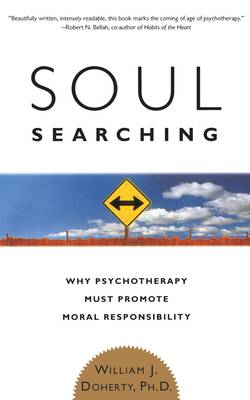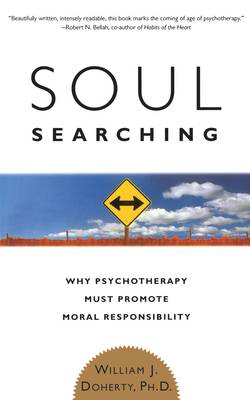
- Afhalen na 1 uur in een winkel met voorraad
- Gratis thuislevering in België vanaf € 30
- Ruim aanbod met 7 miljoen producten
- Afhalen na 1 uur in een winkel met voorraad
- Gratis thuislevering in België vanaf € 30
- Ruim aanbod met 7 miljoen producten
Zoeken
Soul Searching
Why Psychotherapy Must Promote Moral Responsibility
William J Doherty
Paperback | Engels
€ 22,45
+ 44 punten
Omschrijving
Paul, a divorced father, wants to back out of his child care arrangement and spend less time with his children. Nathan has been lying to his wife about a serious medical condition. Marsha, recently separated from her husband, cannot resist telling her children negative things about their father. What is the role of therapy in these situations? Trained to strive for neutrality and to focus strictly on the clients' needs, most therapists generally consider moral issues such as fairness, truthfulness, and obligation beyond their domain. Now, an award-winning psychologist and family therapist criticizes psychotherapy's overemphasis on individual self-interest and calls for a sense of moral responsibility in therapy.
Specificaties
Betrokkenen
- Auteur(s):
- Uitgeverij:
Inhoud
- Aantal bladzijden:
- 224
- Taal:
- Engels
Eigenschappen
- Productcode (EAN):
- 9780465009459
- Verschijningsdatum:
- 22/03/1996
- Uitvoering:
- Paperback
- Formaat:
- Trade paperback (VS)
- Afmetingen:
- 130 mm x 204 mm
- Gewicht:
- 226 g

Alleen bij Standaard Boekhandel
+ 44 punten op je klantenkaart van Standaard Boekhandel
Beoordelingen
We publiceren alleen reviews die voldoen aan de voorwaarden voor reviews. Bekijk onze voorwaarden voor reviews.











